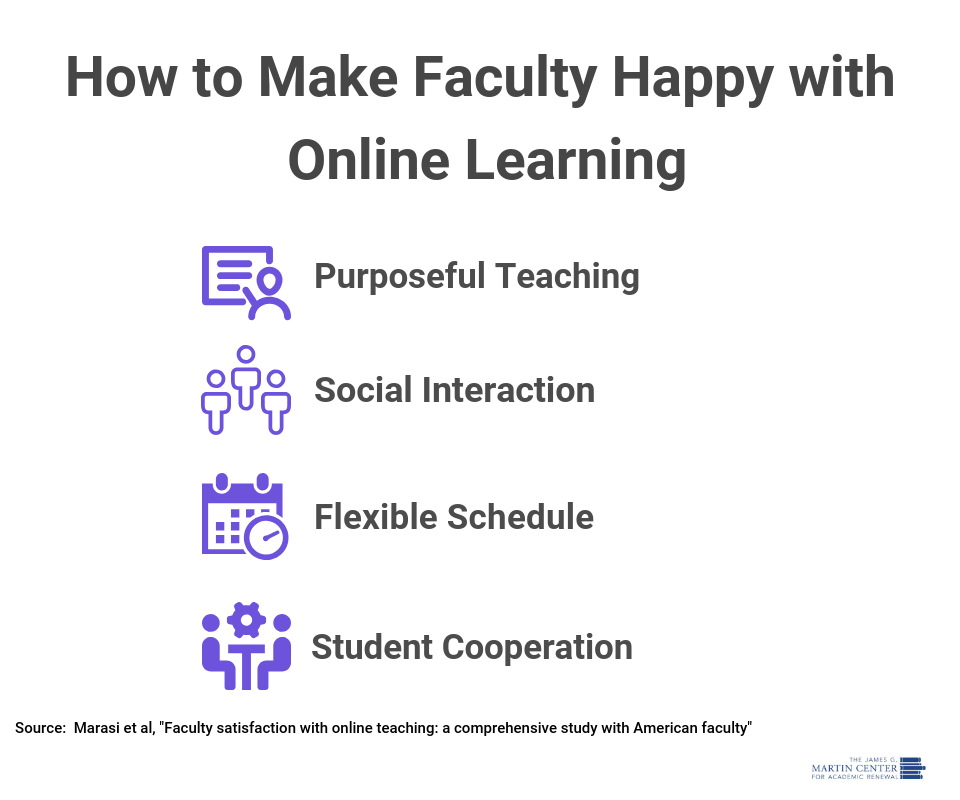The spring semester saw college campuses close and rush to remote instruction. With many schools planning to keep using remote classes in some form for the fall, their benefits need to be understood—as well as their costs.
In a recent article published by Studies in Higher Education, Shelly Marasi, Brian Jones, and Janna M. Parker examined faculty satisfaction with online teaching. They sampled faculty that had taught at least one fully online course over the past year and found that faculty are generally satisfied and enjoyed online teaching.
They also determined several factors that positively affect faculty satisfaction such as flexibility and faculty motivation. Two factors that negatively affect satisfaction are course assistance, which indicates a pre-designed course that limits flexibility, and student evaluations (which professors would prefer to do without).
Social interaction, too, had a substantial positive impact. About 86 percent of faculty indicated that they were more satisfied with “being able to have many interactions and relationships with students.”
The COVID-19 pandemic has shown the need for improving online learning techniques. While experts have agreed that this semester alone is not sufficient to measure the virtues of online learning, it has paved the way for online learning to play a more permanent role in higher education.
If universities plan to continue remote instruction, they need to listen to what resources faculty need and what aspects make online classes more enjoyable. Students, then, will get more out of online classes.
Nicole Divers is a Martin Center intern and a senior at the University of North Carolina at Chapel Hill.

